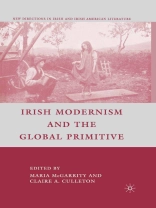This book scrutinizes the way modern Irish writers exploited or surrendered to primitivism, and how primitivism functions as an idealized nostalgia for the past as a potential representation of difference and connection.
İçerik tablosu
PART I: AMBIVALENT PRIMITIVES: RESPONDING TO THE CELTIC REVIVAL Queering the Revivalists’s Pitch: Joycean Engagements with Primitivisim; J.Mc Court Robots and Rebels: Technological and Organic Discourse in Pearse’s Political Essays; B.A.Suess ‘Magnificent Words and Gestures’: Defining the Primitive in Synge’s The aran Islands: E.Gilmatrin PART II: PRIMITIVISM, ETHNOGRAPHY, AND CULTURAL TRANSLATION The Ethnographic Roots of Joyce’s Modernism: Exhibiting Ireland’s Primitives in the National Museum and the ‘Nestor’ Episode; K.St.Peters Lancia Visible Others: Photography and Romantic Ethnography in Ireland; J.Carville ‘The Loveliness Which has Not Yet Come Into the World’: Translation as a Revisitation of Joyce’s (Irish) Modernism; M.T. Caneda-Cabrera Primitive Emancipation: Religion, Sexuality, and Freedom in Joyce’s A Portrait of the Artist as a Young Man and Ulysses: M.Mc Garrity PART III: GENDER, PRIMITIVISM AND THE BODY ‘Reluctant Indians’: Irish Identity and Racial Masquerade; G.Winston Female Militancy and Irish Primitivism: Dorothy Macardle’s Earth-Bound; L.Weihman Domestic Gothic, The Global Primitive, and Gender Relations in Elizabeth Bowen’s The Last September and The House in Paris; P.Lassner & P.Derdiger The Gaelic Athletic Association, Joyce, and the Primitive Body; C.A.Culleton
Yazar hakkında
CLAIRE A. CULLETON is Professor of Modern British and Irish Literature, Kent State University, USA.
MARIA MCGARRITY is Associate Professor of English, Long Island University, USA.












